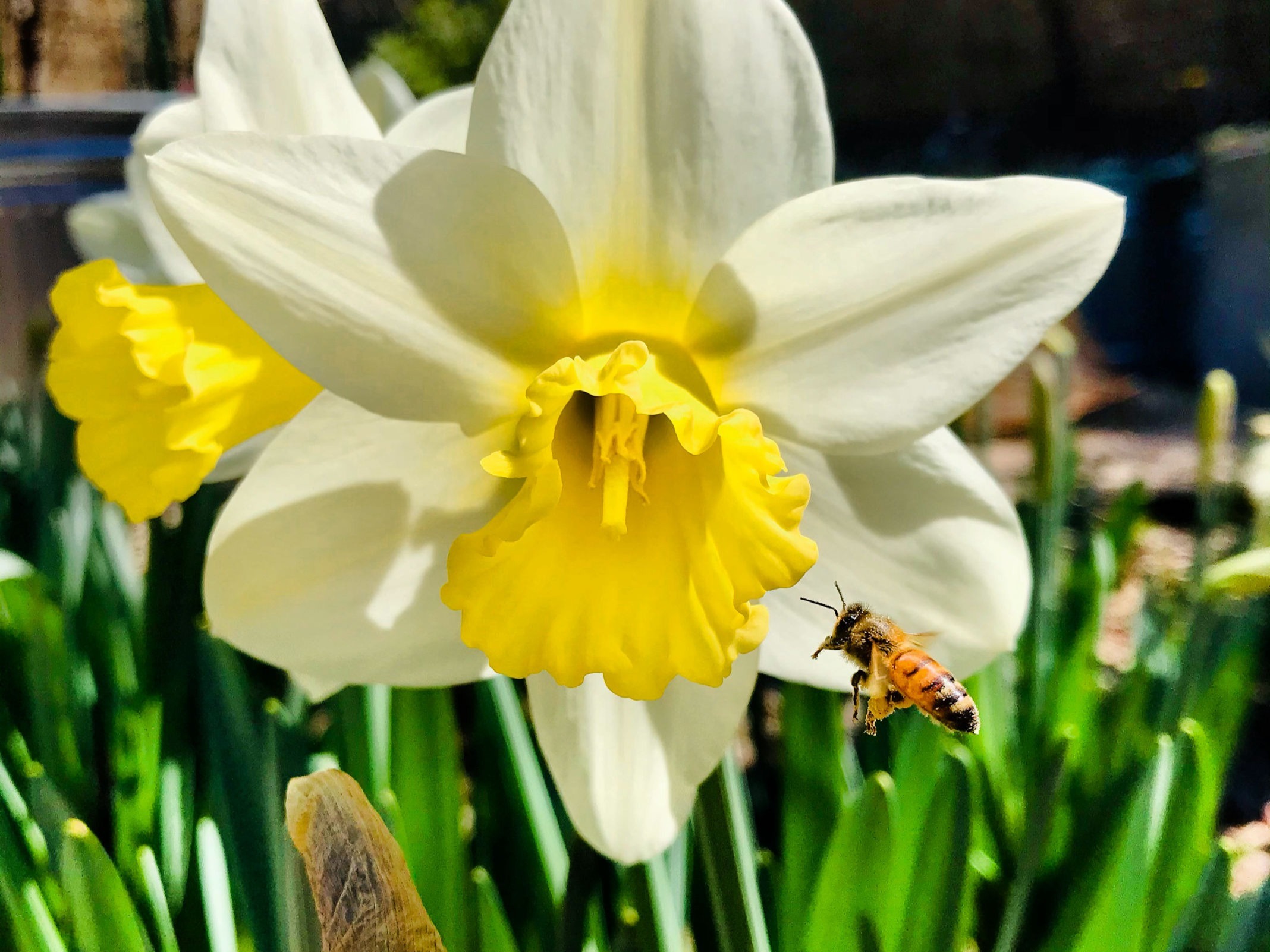
Honey bees used for industrialized agriculture have a rough life. They are forced to pollinate countless mono-crops, endure being trucked all over the country without rest periods, and have all their honey taken away to be replaced with sugar or corn syrup. They are exposed to fungicides, miticides, herbicides, and pesticides (-cide meaning "act of killing").
This is very stressful, and rarely are commercial bees of robust and vital health. Instead, they are weak and unable to stay alive without constant feeding and input from their keepers.
At Beeline Blooms, we offer our bees a home as close to natural as possible. We call it our "Honey Bee Haven." These are European honey bees we keep (introduced to America in the 17th century), so they didn't originate here in California, but we want to provide them with the best life we can.
We are organic and treatment-free beekeepers who feed sugar syrup only in emergencies and never push the bees beyond seasonal growth. We do not use pollen replacements or substitutes. Feeding ingredients like dried eggs and brewers yeast to bees contribute to poor health. We have planted acres of fodder for them, provide water year-round, and do everything we can to ensure they are comfortable and healthy.
Often this means intentionally doing nothing at all.
We will let a colony fail on its own if it is infested with the honey bee's worst pest, a mite called Varroa Destructor. Through this "survival of the fittest" practice, we rarely (there is no always or never in beekeeping) lose a colony to these mites. Because of their vital health, our colonies can handle high mite exposure and fend off collapse through hygienic behaviors.
Here in the Santa Cruz mountains, it can be damp, arid, windy, smoking hot, or downright drenched, depending on the season or even the day. This isn't a stellar environment for the bees to produce excess honey. For this reason, we barely ever take honey from our girls.
They need it way more than we do!
We collect propolis and wax when they produce extra to make things like tinctures, lip balm, salves, and crafts.
Karla has been teaching beginning to advanced organic beekeeping techniques for ten years. She was previously the Santa Cruz Beekeepers Guild president and is still a board member. Are you interested in learning more?
Contact us if you'd like to schedule a private individual or group class.
